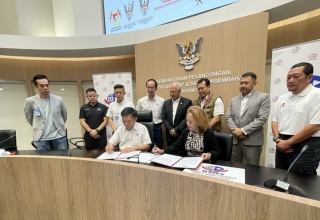
Malaysia has started to impose a new 10 per cent sales tax on low value goods (LVG) that are sold online and shipped from abroad to customers in Malaysia, effective from January 1, 2024. The new tax, which applies to goods priced below RM500 each, has drawn mixed reactions from online sellers, local businesses, and consumers, who have different views on the benefits and drawbacks of the policy¹.
What are the pros of the new sales tax?
The new sales tax on LVG is meant to encourage Malaysians to purchase more locally made products and to level the playing field between foreign and local sellers, who are currently subject to a 5 per cent to 10 per cent sales tax on items sold. The new tax is also expected to generate additional revenue for the government, which could be used to fund public services and development projects¹.
Some of the pros of the new sales tax are:
- It could boost the local e-commerce industry, which could create more jobs and income opportunities for Malaysians, especially for small and medium enterprises (SMEs) and micro-entrepreneurs, who could benefit from the increased demand and competitiveness of their products².
- It could enhance the quality and standards of the local products, which could improve the customer satisfaction and loyalty, and the reputation and branding of the local sellers, who could invest more in innovation and improvement of their products³.
- It could reduce the environmental and social impacts of the online shopping, which could contribute to the sustainability and the well-being of the society, as the local products could have lower carbon footprint and packaging waste, and higher ethical and safety standards, than the imported products⁴.
Keep Reading
What are the cons of the new sales tax?
The new sales tax on LVG could also have negative effects on the online sellers, local businesses, and consumers, who may face higher costs and risks, and lower choices and convenience, as a result of the policy. The new tax could also create challenges and issues for the implementation and enforcement of the policy, which may require more resources and coordination from the government and the stakeholders¹.
Some of the cons of the new sales tax are:
- It could increase the prices and the costs of the online shopping, which could reduce the affordability and the accessibility of the products for the consumers, especially for those who have low income or who live in rural areas, who may rely on the imported products for their needs and preferences⁵.
- It could reduce the variety and the availability of the online shopping, which could limit the options and the opportunities for the consumers, especially for those who seek niche or specialized products that are not available or produced locally, or who enjoy the diversity and the novelty of the imported products⁶.
- It could create unfairness and discrimination for the online sellers, local businesses, and consumers, who may be subjected to different tax rates and rules, depending on the type and the source of the products, and the mode and the platform of the delivery, which could create confusion and inconsistency in the market.
The new sales tax on LVG, therefore, is a complex and controversial policy that has pros and cons for the online sellers, local businesses, and consumers, and for the economy and the society. The new sales tax, therefore, should be evaluated and reviewed regularly, and be adjusted and improved accordingly, to ensure that it achieves its objectives and benefits, and minimizes its costs and harms, for all parties involved.




























